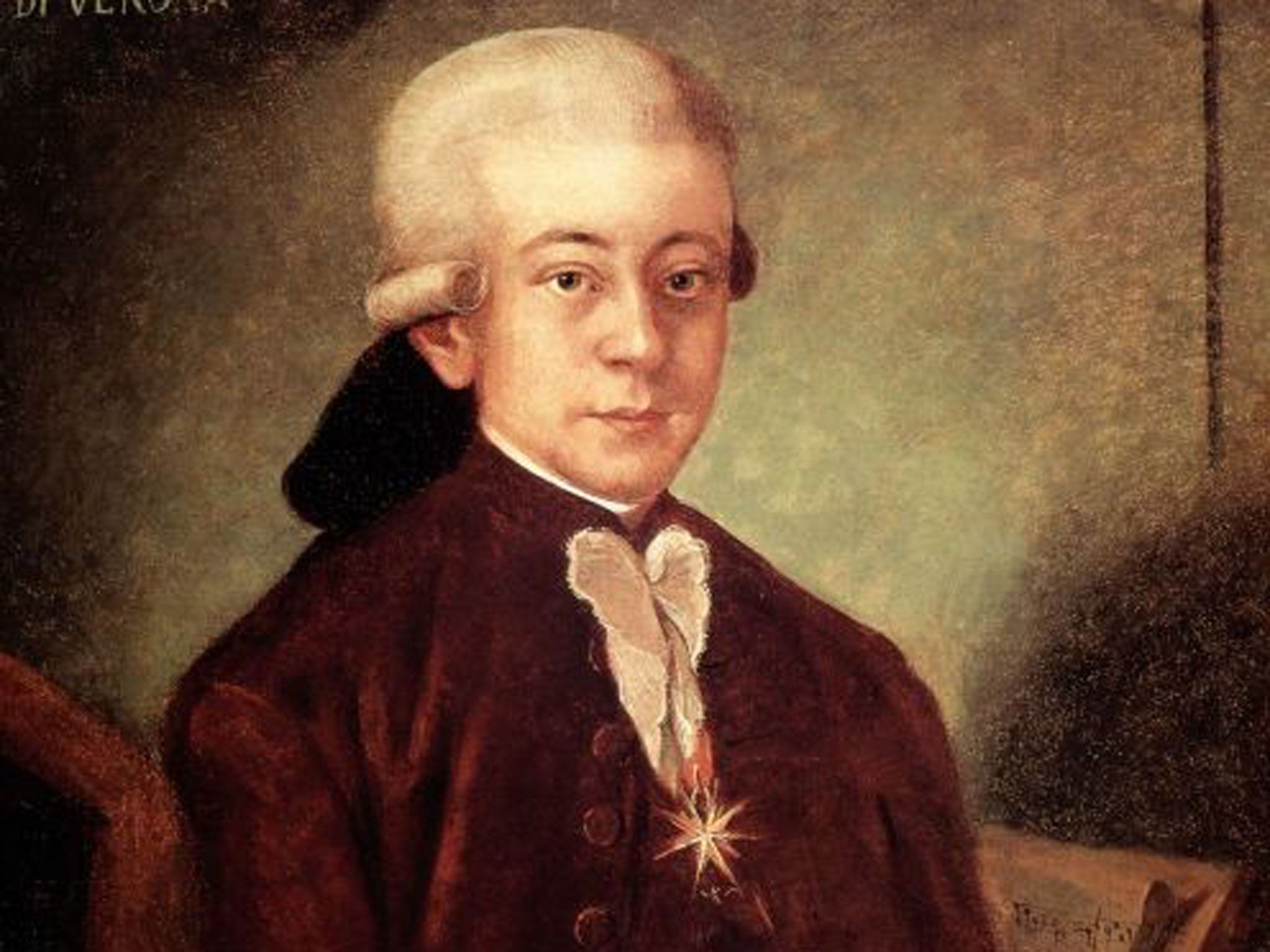It's not over till the fat lady sings – quietly: Maestro wants volume turned down on Mozart - as the composer intended
Conductor, Teodor Currentzis, is set to release a 'no compromise' studio recording of three of the composer's most famous works

Your support helps us to tell the story
From reproductive rights to climate change to Big Tech, The Independent is on the ground when the story is developing. Whether it's investigating the financials of Elon Musk's pro-Trump PAC or producing our latest documentary, 'The A Word', which shines a light on the American women fighting for reproductive rights, we know how important it is to parse out the facts from the messaging.
At such a critical moment in US history, we need reporters on the ground. Your donation allows us to keep sending journalists to speak to both sides of the story.
The Independent is trusted by Americans across the entire political spectrum. And unlike many other quality news outlets, we choose not to lock Americans out of our reporting and analysis with paywalls. We believe quality journalism should be available to everyone, paid for by those who can afford it.
Your support makes all the difference.A major new production of Mozart's operas will turn the volume down on the tenors and sopranos whose deafening vocal techniques and relentless vibrato have made it "virtually impossible" to hear the composer's music as he intended.
Teodor Currentzis, the provocative young conductor who has won a string of awards for his reinvention of Mozart's works, will next year unveil his "no compromise" studio recording of three of the composer's most famous works. The often black-clad 41-year-old, described as the "Nick Cave of classical", has painstakingly arranged The Marriage of Figaro, Così fan tutte and Don Giovanni – known as the "Da Ponte operas" after his friend Lorenzo Da Ponte who wrote the libretti to all three – with his MusicAEterna orchestra and choir. Both are based in the Russian city of Perm, 1,400km east of Moscow.
The Greek-born Currentzis says his intention with the recordings, released in 2014 by Sony Classical, is to reverse an obsession with "vocal volume at all cost" and simplification, which he argues has disfigured productions.
"I made this recording because I wanted to show what can be achieved if you avoid the factory approach of the classical music mainstream," he said.
"The vocal technique of the 20th century, with its massive voices, was mostly concerned with generating enough volume to fill ever larger theatres. But it lost all notion of the voice as a palette of tonal colours which allow the singer to fully communicate the score to the audience. The magic is lost."
Currentzis's Figaro was recorded in sessions of up to 14 hours a day over 11 straight days and nights. Sometimes the orchestra would devote a full rehearsal to shaping a single chord to perfection. The conductor describes Mozart as "the greatest musician to ever walk this earth. Yet it is virtually impossible to hear this music as he wrote it."
He admits that audiences may need time to adapt to the vocal soloist's technique, which restricts the use of vibrato. "I wanted to make an opera recording with the least 'operatic' singing you have ever heard," said Currentzis. "Singing of great intimacy that comes from the heart and goes straight to the heart. The non-stop vibrato of the 20th century just destroys the purity of intonation and makes the sound heavier and weaker."
Currentzis's aversion to volume and vibrato emerged at an early age. "My mother tells me that when hearing opera on the radio as a five-year-old, I asked her why the singers were producing such unnatural sounds," he recalled.
Currentzis has been described by one critic as "one of those rare artists capable of shifting the ground of his chosen art and pulling off something extraordinary". He said: "If I thought this music sounds better on electric guitars, I would perform it on electric guitars."
The Mozart recording cycle is one of the most ambitious attempted in a market that has struggled to counter the decline in CD sales. Currentzis's interpretation may prove challenging to some classical buffs but he has the backing of Sony.
Sony Classical's president, Bogdan Roscic, said: "Vocal production these days can be quite coarse because of the need to fill a huge theatre. There is also a bit of opera machismo. The biggest insult that can be hurled at a singer is 'your voice is small'."
Roscic said high-quality audio will be the vital for maintaining classical sales and The Marriage of Figaro, the first release in the cycle in February, will be available on high-resolution Blu-ray as well as a specially mastered version for iTunes.
Currentzis, artistic director of the Perm Opera and Ballet Theatre, moved to Russia in the 1990s to study conducting at the St Petersburg State Conservatory. He has also won Russia's Golden Mask awards on four occasions, including the best director honour for an opera of Così fan tutte.
He said: "The radicality of this [Mozart] recording is its precision.
"My credo is that every performance you give has to be like a pregnancy. You have to dream and you have to wait until the time comes when you see the miracle happening. Music is not a profession... It's a mission."
Join our commenting forum
Join thought-provoking conversations, follow other Independent readers and see their replies
Comments